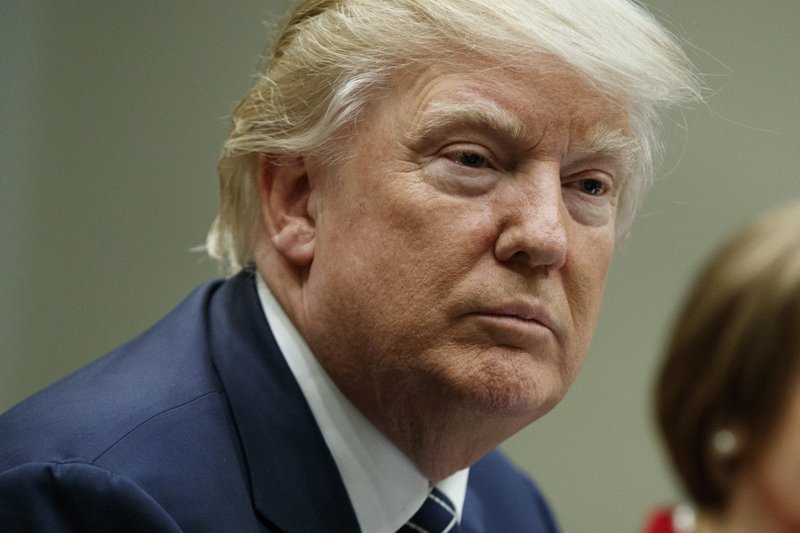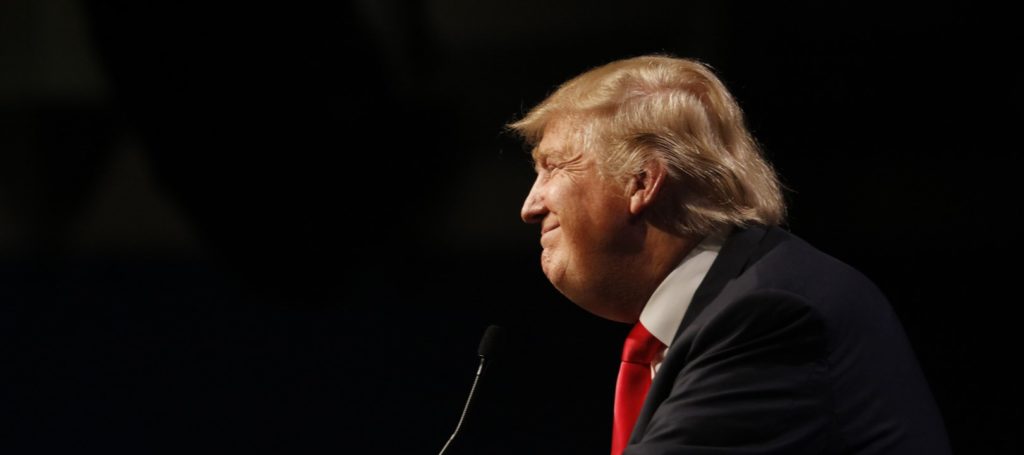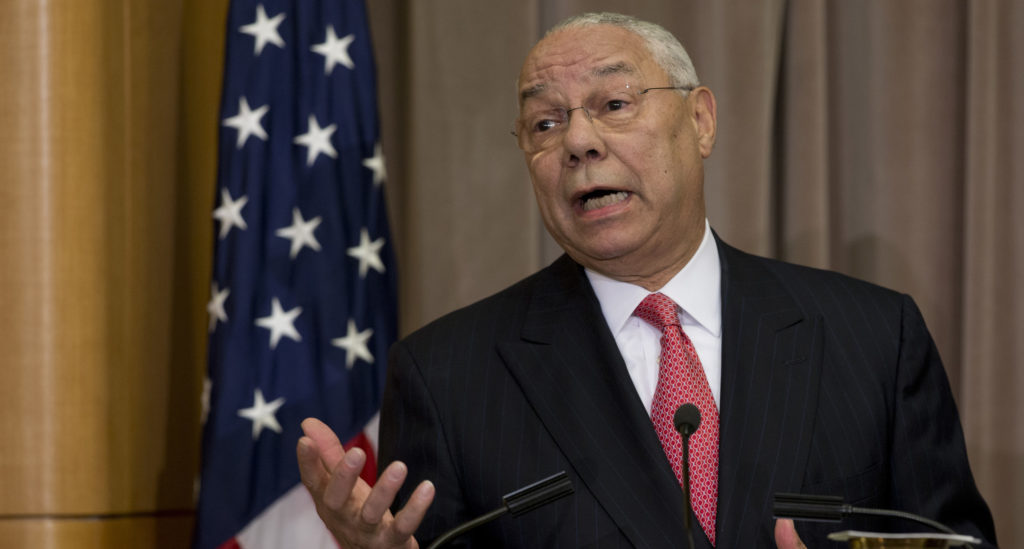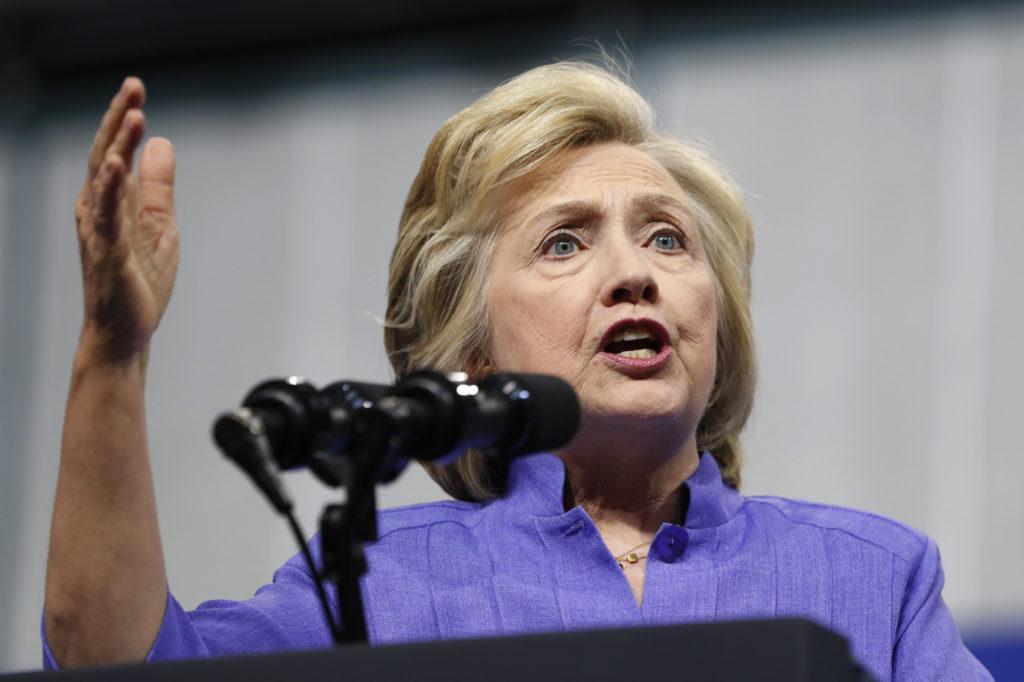Madeleine Albright, 1st female U.S. secretary of state, dies

Madeleine Albright, a child refugee from Nazi- and then Soviet-dominated Eastern Europe who rose to become the first female secretary of state and a mentor to many current and former American statesmen and women, died Wednesday of cancer, her family said. She was 84. A lifelong Democrat who nonetheless worked to bring Republicans into her orbit, Albright was chosen in 1996 by President Bill Clinton to be America’s top diplomat, elevating her from U.S. ambassador to the United Nations, where she had been only the second woman to hold that job. As secretary of state, Albright was the highest-ranking woman in the history of the U.S. government. She was not in the line of succession to the presidency, however, because she was born in what was then Czechoslovakia. Still, she was universally admired for breaking a glass ceiling, even by her political detractors. “We have lost a loving mother, grandmother, sister, aunt, and friend,” her family said in a statement. President Joe Biden ordered flags at the White House and other federal buildings and grounds to be flown at half-staff until March 27. Outpourings of condolences came quickly. Biden said, “America had no more committed champion of democracy and human rights than Secretary Albright, who knew personally and wrote powerfully of the perils of autocracy.” “When I think of Madeleine,” Biden added, “I will always remember her fervent faith that ‘America is the indispensable nation.’” Secretary of State Antony Blinken said Albright was “a brilliant diplomat, a visionary leader, a courageous trailblazer, a dedicated mentor, and a great and good person who loved the U.S. deeply and devoted her life to serving it.” Clinton called her “one of the finest Secretaries of State, an outstanding U.N. Ambassador, a brilliant professor, and an extraordinary human being.” “And through it all,” Clinton added, “even until our last conversation just two weeks ago, she never lost her great sense of humor or her determination to go out with her boots on, supporting Ukraine in its fight to preserve freedom and democracy.” Former President George W. Bush said Albright “lived out the American dream and helped others realize it. … She served with distinction as a foreign-born foreign minister who understood firsthand the importance of free societies for peace in our world.” Linda Thomas-Greenfield, U.S. envoy to the United Nations, honored Albright as a “trailblazer and a luminary” in remarks on the General Assembly floor. In 2012, President Barack Obama awarded Albright the Medal of Freedom, the nation’s highest civilian honor, saying her life was an inspiration to all Americans. Albright remained outspoken through the years. After leaving office, she criticized Bush for using “the shock of force” rather than alliances to foster diplomacy and said Bush had driven away moderate Arab leaders and created the potential for a dangerous rift with European allies. As a refugee from Czechoslovakia who saw the horrors of both Nazi Germany and the Iron Curtain, she was not a dove, and she played a leading role in pressing for the Clinton administration to get militarily involved in the conflict in Kosovo. She also took a hard line on Cuba, famously saying at the United Nations that the Cuban shootdown of a civilian plane was not “cojones” but rather “cowardice.” Albright advised women “to act in a more confident manner” and “to ask questions when they occur and don’t wait to ask.” “It took me quite a long time to develop a voice, and now that I have it, I am not going to be silent,” she told HuffPost Living in 2010. When the Senate Foreign Relations Committee asked her in January 2007 whether she approved of Bush’s proposed “surge” in U.S. troops in bloodied Iraq, she responded: “I think we need a surge in diplomacy. We are viewed in the Middle East as a colonial power, and our motives are suspect.” Albright was an internationalist whose point of view was shaped in part by her background. Her family fled Czechoslovakia in 1939 as the Nazis took over their country, and she spent the war years in London. After the war, as the Soviet Union took over vast chunks of Eastern Europe, her father, a Czech diplomat, brought his family to the United States. As secretary of state, Albright played a key role in persuading Clinton to go to war against the Yugoslav leader Slobodan Milosevic over his treatment of Kosovar Albanians in 1999. As U.N. ambassador, she advocated a tough U.S. foreign policy, particularly in the case of Milosevic’s treatment of Bosnia and NATO’s intervention in Kosovo, was eventually dubbed “Madeleine’s War.” “My mindset is Munich,” she said frequently, referring to the German city where the Western allies abandoned her homeland to the Nazis. Albright helped win Senate ratification of NATO’s expansion and a treaty imposing international restrictions on chemical weapons. She led a successful fight to keep Egyptian diplomat Boutros Boutros-Ghali from a second term as secretary-general of the United Nations. He accused her of deception and posing as a friend. And she once exclaimed to Colin Powell, then chairman of the Joint Chiefs of Staff, who would later succeed her as secretary of state: “What’s the point of having this superb military you’re always talking about if we can’t use it?” Powell, who died last year, recalled in a memoir that Albright’s comment almost made him have an “aneurysm.” Despite her championing of diplomacy in the Middle East and a late Clinton-era foray to North Korea, which made her the highest-ranking U.S. official to visit the Stalinist state, Albright drew criticism for her support of sanctions against Iraq that many blame for humanitarian suffering in the country under Saddam Hussein. “I am an eternal optimist,” Albright said in 1998, amid an effort as secretary of state to promote peace in the Middle East. But she said getting Israel to pull back on the West Bank and the Palestinians to rout terrorists posed serious problems. Albright made limited progress at first in trying to expand the
Colin Powell, exemplary general stained by Iraq claims, dies

Colin Powell, who served Democratic and Republican presidents in war and peace but whose sterling reputation was forever stained when he went before the U.N. and made faulty claims to justify the U.S. war in Iraq, has died of COVID-19 complications. He was 84. A veteran of the Vietnam War, Powell rose to the rank of four-star general and in 1989 became the first Black chairman of the Joint Chiefs of Staff. In that role, he oversaw the U.S. invasion of Panama and later the U.S. invasion of Kuwait to oust the Iraqi army in 1991. But his legacy was marred when, in 2003, he went before the U.N. Security Council as secretary of state and made the case for the U.S. war against Iraq at a moment of great international skepticism. He cited faulty information claiming Saddam Hussein had secretly stashed away weapons of mass destruction. Iraq’s claims that it had no such weapons represented “a web of lies,” he told the world body. In announcing his death on social media, Powell’s family said he had been fully vaccinated. “We have lost a remarkable and loving husband, father and grandfather, and a great American,” the family said. Powell had been treated at Walter Reed National Medical Center in Bethesda, Maryland. Powell was the first American official to publicly lay the blame for the 9/11 terrorist attacks on Osama bin Laden’s al-Qaida network and made a lightning trip to Pakistan in October 2001 to demand that then-Pakistani President Pervez Musharraf cooperate with the United States in going after the Afghanistan-based group, which also had a presence in Pakistan, where bin Laden was later killed. As President George W. Bush’s first secretary of state, Powell led a State Department that was dubious of the military and intelligence communities’ conviction that Saddam Hussein possessed or was developing weapons of mass destruction. And yet, despite his reservations, he presented the administration’s case that Saddam indeed posed a major regional and global threat in a speech to the U.N. Security Council in the run-up to the war. That speech, replete with his display of a vial of what he said could have been a biological weapon, was later derided as a low-point in Powell’s career, although he had removed some elements that he deemed to have been based on poor intelligence assessments. Bush said Monday that he and former first lady Laura Bush were “deeply saddened” by Powell’s death. “He was a great public servant” and “widely respected at home and abroad,” Bush said. “And most important, Colin was a family man and a friend. Laura and I send Alma and their children our sincere condolences as they remember the life of a great man.” Powell rose to national prominence under Republican presidents and considered a presidential bid of his own but ultimately moved away from the party. He endorsed Democrats in the last four presidential elections, starting with former President Barack Obama. He emerged as a vocal Donald Trump critic in recent years, describing Trump as “a national disgrace” who should have been removed from office through impeachment. Following the Jan. 6 storming of the U.S. Capitol, Powell said he no longer considered himself a Republican. Powell rose from a childhood in a fraying New York neighborhood to become the nation’s chief diplomat. “Mine is the story of a black kid of no early promise from an immigrant family of limited means who was raised in the South Bronx,” he wrote in his 1995 autobiography “My American Journey.” At City College, Powell discovered the ROTC. When he put on his first uniform, “I liked what I saw,” he wrote. He joined the Army, and in 1962 he was one of more than 16,000 military advisers sent to South Vietnam by President John F. Kennedy. A series of promotions led to the Pentagon and assignment as a military assistant to Secretary of Defense Caspar Weinberger, who became his unofficial sponsor. He later became commander of the Army’s 5th Corps in Germany and later was national security assistant to President Ronald Reagan. During his term as Joint Chiefs chairman, his approach to war became known as the Powell Doctrine, which held that the United States should only commit forces in a conflict if it has clear and achievable objectives with public support, sufficient firepower, and a strategy for ending the war. Defense Secretary Lloyd Austin, a retired Army general, said the news of Powell’s death left “a hole in my heart.” “The world lost one of the greatest leaders that we have ever witnessed,” Austin said while traveling in Europe. “Alma lost a great husband, and the family lost a tremendous father, and I lost a tremendous personal friend and mentor. He has been my mentor for a number of years. He always made time for me, and I can always go to him with tough issues; he always had great counsel.” Powell’s appearances at the United Nations as secretary of state, including his Iraq speech, were often accompanied by fond reminiscing of his childhood in the city, where he grew up the child of Jamaican immigrants who got one of his first jobs at the Pepsi-Cola bottling plant directly across the East River from the U.N. headquarters. A fan of calypso music, Powell was the subject of criticism from, among others, singing legend Harry Belafonte, who likened Powell to a “house slave” for going along with the decision to invade Iraq. Powell declined to get into a public spat with Belafonte but made it known that he was not a fan and much preferred the Trinidadian calypso star, the “Mighty Sparrow.” Powell maintained, in a 2012 interview with The Associated Press, that on balance, U.S. succeeded in Iraq. “I think we had a lot of successes,” Powell said. “Iraq’s terrible dictator is gone.” Saddam was captured by U.S. forces while hiding out in northern Iraq in December 2003 and later executed by the Iraqi government. But the insurgency grew, and the war dragged on far
Democrats make it official, nominate Joe Biden to take on Donald Trump

For Biden, who has spent more than three decades eyeing the presidency, the moment was the realization of a long-sought personal goal.
Darryl Paulson: Why Donald Trump won — A review of the 2016 election

We know Donald Trump won and Hillary Clinton lost the 2018 presidential election. What else do we need to know? We need to know why Trump won and Clinton lost. We know that Clinton won the popular vote 65,844,954 to 62,979,879, or by 2.9 million votes. Trump’s popular vote deficit was the largest ever for someone elected president. We all know that he popular vote does not determine the winner in a presidential election. The only thing that matters is the electoral vote, and Trump won 304 electoral votes to Clinton’s 227. Trump won 34 more electoral votes than was needed to win the election. There were also seven “faithless” electors who cast their vote for neither Trump or Clinton. Three voted for former general and Secretary of State Colin Powell. Vermont Sen. Bernie Sanders, Ohio Governor John Kasich, former congressman and presidential candidate Ron Paul and Sioux anti-pipeline activist Faith Spotted Eagle each received one vote. Ask individuals why Trump Won and Clinton lost and you will receive a variety of responses. Some Clinton supporters argue that she lost because of Russian hackers and WikiLeaks releasing her emails. Others blame FBI Director James Comey’s “October surprise” about reopening the investigation into Clinton’s emails shortly before the election. Others blame Clinton for her defeat. She was an unpopular candidate who barely defeated a little-known Vermont senator even though the Democratic National Committee seemed to do everything possible to assist Clinton in winning the primaries. Many saw Clinton’s use of a private email server, in spite of warnings, to be a self-inflicted wound, as was her comment about Trump’s supporters being a “basket of deplorables.” Heading into election night, the election was Clinton’s to lose, and that’s exactly what she did. Clinton was not the only Democrat to lose. What was supposed to be a great election for Democrats, turned into a great election for Republicans. Republicans lost only two senate seats, although they had to defend 24 of the 34 contested seats. Republicans lost only six seats in the House, although Democrats had hoped to win control of both chambers at one point. In addition, Republicans picked up two more governorships, raising their total to 33, and they won control of both houses in the state legislatures in two more states, giving them complete control in 32 of the 49 states with a bicameral legislature. Trump won, in part, by shifting six states from the Democratic to the Republican column. Trump won the key state of Ohio by 8 points and Iowa by 9 points. He also squeaked out narrow wins in Florida (1.2 percent), Wisconsin (0.8 percent), Pennsylvania (0.7 percent) and Michigan (0.2 percent). Victories in these six states added 99 electoral votes to the Trump total, more than enough to win the election. Republicans like to point to Trump’s strengths by noting he won 30 states to 20 for Clinton, carried 230 congressional districts to 205 for Clinton and swept over 2,500 counties compared to less than 500 for Clinton. The political map of America looked very red and looked very much like a Trump landslide. But maps often distort political reality. After all, Clinton did win 2.9 million more votes than Trump. If she had not lost Michigan, Pennsylvania and Wisconsin by less than 1 percent, she would have been president and Trump would be managing his hotel chain. The usual explanation for Clinton’s loss was that turnout was far lower than normal. That is not true. The total turnout of 136.6 million was a record turnout and represented 60 percent of the voter-eligible population. Turnout was down slightly for black voters, but that ignores the fact that 2008 and 2012 had record black turnout due to the Barack Obama candidacy. According to a recent analysis of the 2016 presidential vote by The New York Times, Trump’s victory was primarily due to his ability to persuade large numbers of white, working-class voters to shift their loyalty from the Democrats to the Republicans. “Almost one in four of President Obama’s 2012 white working-class supporters defected from the Democrats in 2016.” Trump was able to convince enough working-class Americans that he was the dealmaker who would work for the little guy and Make America Great Again. “I am your voice,” said Trump, and the America voters believed him. ___ Darryl Paulson is Emeritus Professor of Government at the University of South Florida St. Petersburg specializing in Florida Politics, political parties and elections.
Martin Dyckman: Cowards who stand aside

“Once to every man and nation “Comes the moment to decide “In the strife of truth with falsehood “For the Good or Evil side ….. “Then it is the brave man chooses, “While the coward stands aside” The American poet James Russell Lowell wrote those words in 1844 during the intensifying crisis over slavery. They speak to us again. Donald Trump is a uniquely evil candidate for president. It is indeed a moment to decide. Evil? I don’t wield that adjective casually. Trump’s gross sense of sexual entitlement, as he boasted in the Billy Bush tape, isn’t even the worst of it. We already knew about that aspect of his sleaziness, a misogyny bordering on perversion. But just as it appeared it couldn’t get any lower than that, it did. The cornered hyena struck back by threatening to prosecute and imprison his opponent if he wins. And that didn’t end with the debate. He’s been feeding it like raw meat to his howling mobs, reveling in their chants of “Lock her up.” There has never been anything like that in American politics. It’s what foreign tyrants like his darling Vladimir Putin do — that is, when they’re not simply killing their rivals. It’s what Fidel Castro, Adolf Hitler, Josef Stalin and Augusto Pinochet did to theirs. The list is long: Zimbabwe, Iran, North Korea, Turkey and others. “Republicans should not be okay with @realDonaldTrump threatening to jail his opponent after the election,” wrote Arizona Republican Sen. Jeff Flake. “That is not who we are.” Flake was an early and honorable critic of his party’s putrid nominee. He didn’t wait for the sewer to overflow. But far too many other Republicans still pretend for public consumption that Trump is fit to be president. They are the cowards who stand aside. That Trump is morally and mentally unfit and unworthy in every respect for the presidency is only part of the problem. The other is that he has laid bare and energized the ugly underside of American society. We host a virulent racism rooted in the original national sin of slavery. There is angry intolerance for the diversity reflected in our founding motto, e pluribus Unum — from many, one. There is hostility especially to the give-and-take political process upon which our democracy depends. Not all Trump supporters harbor these hatreds, but those who do will not fade away with his defeat. He seems, in fact, to be setting himself as up as a third force in American politics, subsuming the Tea Party in an authoritarian movement that most of us hoped could never happen here. The Republican Party bears enormous blame for this. Although conscientious Republicans were instrumental in passing the Civil Rights and Voting Rights acts of the 1960s, it was a series of their presidential candidates — Goldwater, Nixon, Reagan — who exploited Southern resentment to infect their party with racism and move it far to the right. There has been an endless parade of Republican politicians making their way into government by denouncing the very same political system at whose trough they feed. This is the paranoia upon which Trumpism feeds. Who in the GOP spoke out to denounce Trump in the four years he spent subverting President Obama‘s administration with the birther myth? I can remember only Colin Powell defending the president’s legitimacy. Other Republicans were happy to see someone with Trump’s celebrity doing their dirty work for them. Now they are shocked — shocked! — that someone so vile is their nominee. Give credit to those who refused, early and honorably, to wallow in the sewer. They include the former presidents Bush, Jeb Bush and his friend and adviser Mac Stipanovich, Sen. Lindsey Graham, and others who couldn’t stomach Trump’s demonization of Hispanics and Muslims, and also marked him — accurately—as not conservative. The good news, according to USA Today, is that more than a fourth of elected top Republicans — governors and members of Congress — are now refusing to endorse his candidacy. But the bad news is that nearly three of four of these so-called leaders still refuse to repudiate his candidacy despite his contempt for women and his threat to become a tyrant. Denouncing his gross behavior and his dirty mouth isn’t enough. He is unfit in every way for any office, let alone the highest in the land. No politicians who pretend otherwise are fit for office themselves. As has been written, Marco Rubio would rather debase himself — and his office — than risk alienating the Tea Partiers who put him into the Senate. It figures. He’s been nothing but an opportunist throughout his career, which has been defined by winning offices he hasn’t earned and puts to no good use. Rubio is hardly alone, of course, in putting his own welfare ahead of his country’s. Rubio and all other Trump apologists deserve to be defeated, every one of them. For our country’s sake, they must be. For the Republican Party’s own sake, they must be. The cowards should be pushed aside. ___ Martin Dyckman is a retired associate editor of the newspaper now known as the Tampa Bay Times. He lives in suburban Asheville, North Carolina.
Leaked Colin Powell emails fault Donald Trump and Hillary Clinton

Former Secretary of State Colin Powell, in newly leaked emails, criticized both major presidential candidates, calling Donald Trump “a national disgrace” and lamenting Hillary Clinton‘s attempt to equate her email practices with his. The emails were first reported by Buzzfeed News late Tuesday. Powell, a respected retired general who served under Republican presidential administrations, told BuzzFeed that he does not deny the emails’ authenticity. In a subsequent statement to NBC News, Powell said “the hackers have a lot more” of his emails. In the emails, Powell said he stayed relatively quiet during the rise of Trump, the Republican presidential nominee. “To go on and call him an idiot just emboldens him,” Powell said. The emails also include Powell’s thoughts on Clinton’s email woes. He criticized Clinton aides for tying him into the controversy over the Democratic nominee’s use of a private email server while she was secretary of state. Powell has acknowledged using a commercial email address for some official business. Clinton avoided using the State Department’s email completely, using a private email server. In an email reported by NBC, Powell wrote that he had told Clinton’s “minions repeatedly that they are making a mistake trying to drag me in, yet they still try.” In another spot, he declared of Clinton that “Everything HRC touches she kind of screws up with hubris.” Among Powell’s emails, however, are comments that reflect that he too sought to use private email as a way to avoid creating documents retained by the government. Decrying “friggin record rules,” Powell wrote that he “saw email more like a telephone than a cable machine,” in one email cited by The Intercept. “As long as the stuff is unclassified.” Congressional Democrats have seized on the use of a private email addresses by Powell and former Secretary of State Condoleezza Rice as a foil for Republican attacks on Clinton. By suggesting that he didn’t view work conducted via private email as a permanent government record, Powell could offer those Democrats additional ammunition. The emails were posted on the website DCLeaks.com, a website which has been alleged to be an outlet for hackers tied to the Russian intelligence groups. The website – which says it intends to expose the misuse of political power -has previously released emails from other Washington political figures. Republished with permission of The Associated Press.
Judge orders Hillary Clinton to answer questions on email use

A federal judge on Friday ordered Hillary Clinton to answer questions in writing from a conservative legal advocacy group about her use of a private email server during her tenure as secretary of state. U.S. District Court Judge Emmet G. Sullivan issued the order as part of a long-running public records lawsuit filed by Judicial Watch. The judge’s decision is only a partial victory for the group, which had sought to question the Democratic presidential nominee in person and under oath. The judge said Judicial Watch must submit its questions to Clinton by Oct. 14 and gave Clinton 30 days to respond – a timetable that could push Clinton’s answers past the November presidential election unless Judicial Watch sends its questions earlier than mid-October. Judicial Watch is among several groups, including The Associated Press, that have sued the State Department over access to government records from Clinton’s tenure as the nation’s top diplomat between 2009 and 2013. Republicans are pressing to keep the issue of Clinton’s email use alive after the FBI closed its investigation last month without recommending criminal charges. In a separate development Friday, former Secretary of State Colin Powell said he once sent Clinton a memo touting his use of a personal email account for work-related messages after she took over at the State Department in 2009. In a statement provided to the AP, Powell said he emailed Clinton describing his use of a personal AOL account for unclassified messages while leading the State Department under President George W. Bush. Powell, a Republican, said he told Clinton his use of personal email “vastly improved” communications within the department, which at the time did not have an equivalent internal system. Powell said the FBI may have obtained a copy of his memo to Clinton during its yearlong investigation into Clinton’s use of a private email server to handle sensitive information during her time as secretary. It was not immediately clear whether Powell’s email to Clinton was among the documents from its case file shared earlier this with select congressional committees at the request of House Republicans. Powell, a retired Army general and former chairman of the Joint Chiefs of Staff, said he used a secure computer on his desk at the State Department to manage classified information. Unlike Clinton, Powell relied on a commercially available service to host his personal email account. Clinton’s private server was located in the basement of the New York home she shared with her husband, former President Bill Clinton. Powell issued the statement after veteran political journalist Joe Conason released an excerpt from his upcoming book about Bill Clinton that recounts a 2009 dinner party for Hillary Clinton hosted by former Secretary of State Madeleine Albright. Powell was in attendance, along with other former secretaries including Henry Kissinger and Condoleezza Rice. During dessert, Powell advised Clinton to use a personal email account while in office, as he had done, according to the passage from the book “Man of the World: The Further Endeavors of Bill Clinton” provided to AP. Powell reportedly told Clinton that his use of personal email to communicate with his staff had been “transformative for the department.” According to Conason’s retelling, Clinton replied that she had already decided to continue using the private server in her home she had relied on during her 2008 presidential bid. The Clinton campaign declined to comment on whether the account of the dinner conversation described in Conason’s book is accurate. In his statement, Powell said he has “no recollection” of his purported dinner conversation. Republished with permission of the Associated Press.


